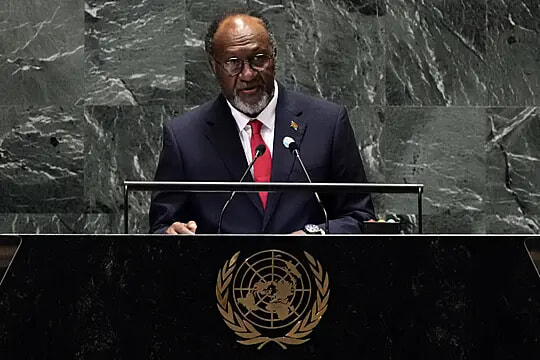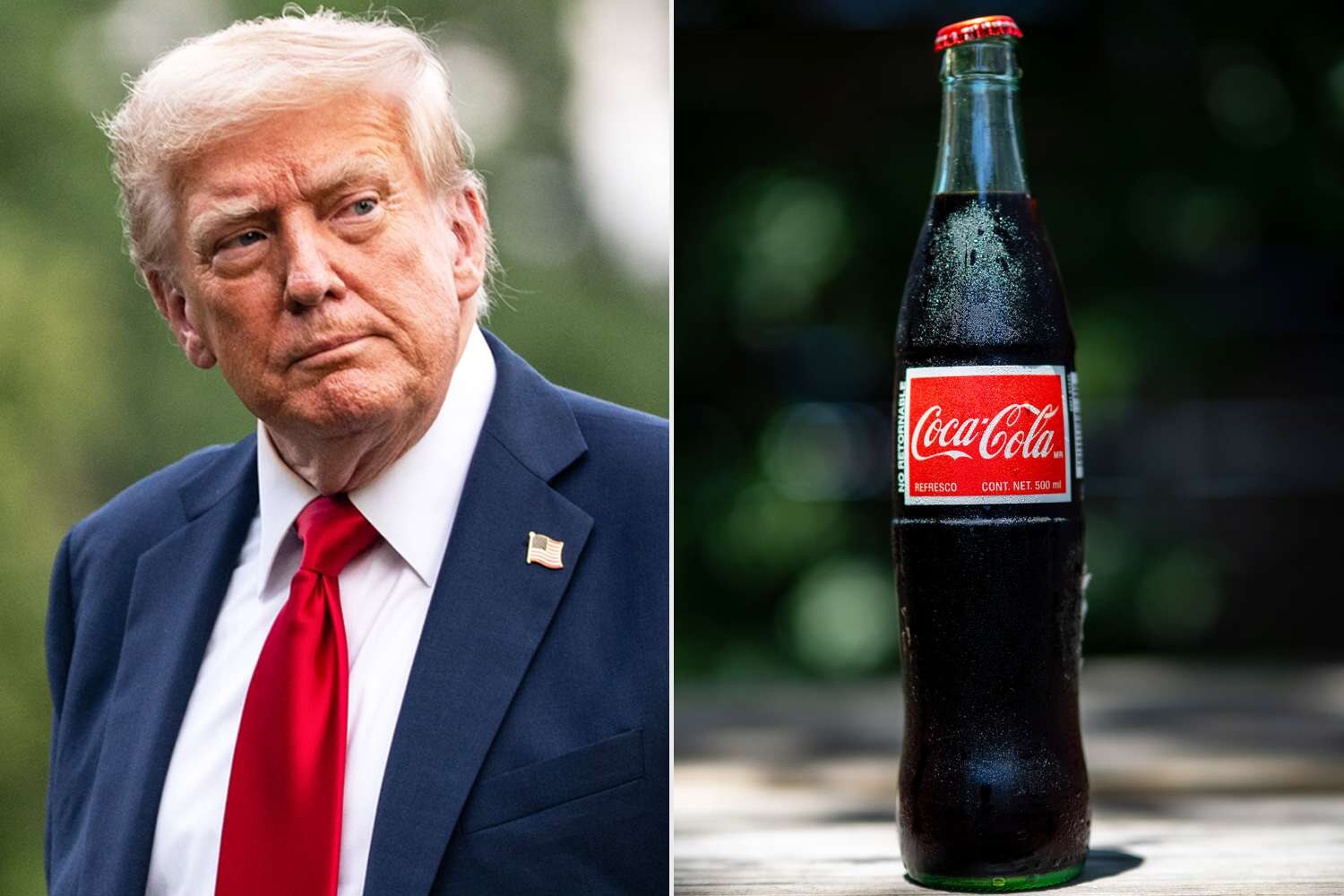
Thailand is De-Legalizing Weed After Becoming the First Asian Country to Decriminalize It
A landmark move.
Published July 3, 2025
Advertisement
Advertisement
1. Thailand’s Green Revolution

Three years ago, Thailand made history as the first country in Asia to decriminalize cannabis, triggering a green rush that reshaped the nation’s economy and culture. Suddenly, thousands of cannabis dispensaries and related businesses sprang up, many clustering in tourist hotspots like Bangkok’s Khao San Road and the beaches of Pattaya. The new policy was initially framed as an opportunity to boost agriculture, empower small businesses, and attract tourists eager for relaxed marijuana laws. By 2022, industry analysts projected the sector could reach $1.2 billion by 2025, with nearly 18,000 shops in operation and countless farmers switching crops. For many, the plant’s sudden freedom became a symbol of Thailand’s liberalizing society, signaling a major break from the region’s traditionally severe drug laws. Tourists flocked in, dispensaries proliferated, and the national mood shifted as “weed cafes” and festivals became regular sights. Medical marijuana had already been legal since 2018, but full decriminalization in 2022 took things further, legalizing the cultivation, sale, and use of cannabis products. Advocates claimed the boom helped everyone from rural farmers to young entrepreneurs and the tourism sector as a whole. For a time, Thailand stood almost alone in Asia as a cannabis haven, drawing attention from neighboring countries where even CBD is banned or possession can mean years in prison. The former health minister, Anutin Charnvirakul, who pushed for legalization, insisted the original intent was to promote medical use, not recreational smoking. Nevertheless, by 2024, Thailand had become synonymous with easy access to cannabis—a radical experiment that caught the world’s eye.
Advertisement
2. Regulatory Chaos

As the cannabis industry flourished, the absence of clear regulations quickly became apparent, sparking concerns from authorities, parents, and public health advocates. Critics argued the country had acted too quickly, allowing a legal vacuum where enforcement was patchy and oversight minimal. With recreational use left unchecked, stories emerged of underage access, addiction, and nuisance complaints, especially in tourist zones. The government faced backlash as street-level sales, advertising, and unregulated products mushroomed across the country. Children and young people were increasingly exposed to cannabis, and smuggling incidents grew, reaching as far as the UK and India. Smuggling networks exploited the lack of control, prompting joint crackdowns with foreign authorities and large-scale seizures. The Ministry of Commerce estimated the industry’s value but admitted that with so much off the books, there was no accurate figure. Public perception shifted as social problems mounted, with a majority in a 2024 poll favoring a return to stricter control. The original promise of medical-only use was being ignored in practice, and attempts to introduce a comprehensive regulatory bill repeatedly failed in parliament. Many advocates agreed regulation was necessary but blamed state officials for not enforcing rules that already existed. By late 2024, calls for a major policy reversal began to echo louder from within the ruling government.
Advertisement
3. A Sudden U-Turn

Political tensions reached a breaking point in June 2025, catalyzing the abrupt reversal of Thailand’s cannabis experiment. The pro-legalization Bhumjaithai Party, which had championed cannabis decriminalization, withdrew from the coalition government following a scandal over border disputes with Cambodia. This departure left the Pheu Thai Party—long critical of relaxed cannabis laws—firmly in control, clearing the path for a hard policy shift. Within days, Health Minister Somsak Thepsuthin signed an order prohibiting cannabis sales for recreational use and reclassifying buds as a controlled herb. All dispensaries were required to verify prescriptions, source from certified farms, and maintain detailed records, with steep penalties for violations. The new regulations will become law once published in the Royal Gazette, a step expected imminently but not yet complete as of late June. Under the revised framework, cannabis is again restricted to medical use only, and recreational access is strictly forbidden. Many industry insiders, from shop owners to farmers, were caught off guard, scrambling to adapt as their livelihoods were thrust into uncertainty. Government spokespersons cited rising addiction rates, social problems among youth, and international pressure as justifications for the crackdown. Opponents and advocates alike recognized the political motivations behind the move, pointing to shifting alliances and public discontent. For now, Thailand’s cannabis policy stands as a cautionary tale of rapid liberalization followed by political retrenchment.
Advertisement
4. The New Order

The new order is sweeping in scope, with strict requirements for anyone involved in cannabis production, sale, or consumption. Retail sales without a prescription are now banned, with dispensaries limited to selling only to those with a valid doctor’s note for medical conditions. Products must be sourced from licensed pharmaceutical-grade farms, which face regular inspections and must report their activities to authorities. Sales are prohibited through vending machines, online channels, and in public spaces such as parks, dormitories, and religious sites. Advertising and marketing of cannabis products are strictly forbidden, with any violators facing up to a year in jail and a 20,000-baht fine. Medical professionals—including doctors, Thai and Chinese medicine practitioners, and dentists—are the only ones permitted to prescribe cannabis, and prescriptions must be limited to 30 days’ use. The Department of Thai Traditional and Alternative Medicine is tasked with developing clear guidelines for implementation and enforcement. While licensed shops may continue operating, they are subject to tighter controls and ongoing scrutiny by government officials. Officials have pledged to give existing businesses some time to adjust, though the specifics of the transition period remain unclear. For many, the policy shift amounts to a de facto shutdown of the recreational market and a severe contraction for the broader cannabis economy. The future for Thailand’s dispensaries and farms now hinges on the successful navigation of a rapidly changing and increasingly regulated landscape.
Advertisement
5. The Impact on Tourism

The abrupt regulatory reversal has stunned Thailand’s cannabis entrepreneurs and the broader tourism industry. Many dispensaries and farms had invested heavily, betting on the continuation of the cannabis boom and the promise of ongoing liberalization. For small businesses, especially in tourist-heavy areas, cannabis had become a critical source of income, fueling everything from cafes to health spas and festivals. With the crackdown, shop owners like Punnathat Phutthisawong in Bangkok expressed disbelief and anxiety over their futures. Tourists, many drawn specifically by the promise of legal weed, are left confused and uncertain about what is still permitted. Industry advocates warn that uncertainty and sudden policy reversals stymie sustainable growth and threaten to drive the industry underground. International visitors, who previously flocked to Thai dispensaries, may now face heightened scrutiny and legal risks if they attempt to buy without a prescription. Thailand’s Chamber of Commerce had once projected the sector would hit $1.2 billion in 2025, but those forecasts now seem out of reach. Events and weed festivals, formerly a mainstay in tourist cities, face cancellation or major changes under the new regime. Hotels, restaurants, and other service providers that benefited from cannabis tourism are bracing for a drop in visitors and spending. For now, the message from the government is clear: cannabis is no longer a selling point for Thai tourism, and the era of easy access is over.
Advertisement
6. Grassroots Resistance

The sudden change in law has galvanized activists, business owners, and farmers who fear for their livelihoods and the fate of Thailand’s cannabis industry. Advocacy groups like the Writing Thailand’s Cannabis Future Network argue that the crackdown will only push sales underground and benefit criminal networks. Activists have vowed to rally at the Health Ministry and organize protests, demanding fair access and sensible, well-enforced regulations. Many blame the lack of enforcement of earlier rules, rather than the plant itself, for the social problems cited by officials. Kitty Chopaka, a prominent cannabis entrepreneur and activist, sees the industry as a casualty of politics rather than public health concerns. She and others point to the broader Thai tradition of unofficial economies and say cannabis will simply return to the shadow market alongside other restricted goods. For smaller growers, the requirement to meet pharmaceutical-grade standards and navigate a complex bureaucracy is a potentially insurmountable hurdle. Industry voices stress the need for transparent, fair, and predictable regulations that foster both safety and business stability. The hope among advocates is for a middle ground—regulation that protects consumers and public health without crushing local industry or driving out innovation. Some entrepreneurs worry that big players will dominate the tightly controlled market, while small farmers and shops will disappear. The debate over cannabis’s place in Thai society is far from settled, with grassroots resistance promising to keep the issue in the national spotlight.
Advertisement
7. The Broader Context

Thailand’s reversal on cannabis comes amid a broader global and regional debate over drug laws, public health, and economic opportunity. The country’s initial liberalization in 2022 set it apart from neighbors like Singapore and Malaysia, where drug possession can result in long prison terms or even the death penalty. Across Asia, legal reforms have mostly lagged behind North America and parts of Europe, where recreational and medical use have become increasingly mainstream. The region’s mixed response includes countries like South Korea, which legalized medical cannabis in 2018 but strictly prohibits recreational use. Thailand’s experiment was closely watched by advocates and policymakers throughout Asia, seen as a potential model for modernization and reform. For global cannabis activists, the Thai reversal is a cautionary tale about the fragility of reform in the face of political backlash and shifting coalitions. International tourists, accustomed to Amsterdam’s tolerant policies, found Thailand’s green rush both surprising and appealing. With the latest policy shift, government officials are sending a strong message that Thailand does not intend to become a destination for recreational cannabis tourism. Cannabis smuggling and cross-border trade have also drawn international attention, with joint crackdowns and border controls stepping up in recent months. Thailand’s reversal could chill regional momentum for reform, as neighboring countries weigh both the risks and rewards. For now, Thailand remains an outlier: the only nation in Southeast Asia to have briefly embraced legal weed, only to pull back amid political storm clouds.
Advertisement
8. Public Health, Addiction, and Enforcement

Central to the government’s argument for recriminalization are rising addiction rates, especially among children and young people. Officials point to studies showing significant increases in cannabis use and addiction since 2022, particularly in cities and tourist zones. Concerns about public health, nuisance, and street-level sales have been cited as reasons for the stricter new regulations. The Ministry of Health claims the move is necessary to protect children and prevent social harm, echoing complaints from parents and teachers. Opponents question whether simply banning recreational use will solve these issues or just drive them underground. Experts argue that the absence of consistent enforcement and public education, not the plant itself, fueled the surge in problems. Under the new framework, enforcement will be stepped up, with monthly reporting requirements and unannounced inspections of cannabis businesses. Smuggling remains a major concern, with British and Thai authorities forming joint task forces to combat illegal exports. Medical professionals and pharmacists now hold the keys to legal access, with non-compliant shops facing stiff penalties or closure. Proponents of regulation see a chance for safer, more controlled access; critics warn of corruption and burdensome bureaucracy. The government’s challenge is to enforce the rules fairly and consistently while balancing public health with economic and personal freedoms.
Advertisement
9. A Path Forward

For Thailand’s cannabis industry, uncertainty reigns as businesses, consumers, and regulators adapt to a drastically altered landscape. The transition from unregulated boom to tightly controlled market is already causing disruptions, with many businesses at risk of closing. Officials have signaled that licensed shops will have time to adjust, but have provided few details on the length or scope of the transition. Farmers and shop owners who made large investments in infrastructure, stock, and staff now face an uncertain future. Some hope for a political reversal or compromise, especially if public pressure and grassroots activism gain momentum. Others fear that the industry will shrink dramatically, with only the largest and best-resourced players surviving under new rules. Legal experts note that the new order must still be published in the Royal Gazette to take full effect, leaving a brief window of ambiguity. For now, cannabis access is legal only with a prescription, and recreational use is again officially off the table. International tourists and investors are watching closely, waiting to see if Thailand will cement its retreat or open the door to another round of reform. As with any rapid policy reversal, the risk of confusion, non-compliance, and legal challenges is high in the months ahead. The story of Thailand’s cannabis revolution is not over yet—its outcome will be shaped by politics, public opinion, and the push and pull of competing interests.
Advertisement
10. Lessons from Thailand’s Cannabis Experiment

Thailand’s rapid journey from prohibition to full decriminalization and back again offers lessons for countries considering similar reforms. The initial green rush revealed both the economic potential and social risks of liberal cannabis laws, especially without a clear regulatory framework. Advocates point to the benefits for farmers, entrepreneurs, and the broader tourism industry, while critics warn of addiction, smuggling, and public disorder. Political instability and shifting alliances proved decisive, demonstrating how fragile liberalization can be in the absence of consensus and careful planning. The reversal has sent shockwaves through the global cannabis community, tempering hopes for regional reform and emboldening opponents of legalization. For Thailand, the challenge now is to craft regulations that protect public health and safety without sacrificing innovation, investment, or access to medical care. Stakeholders on all sides agree that clear, consistent, and fair laws are essential for a functioning industry and a stable society. The Thai case shows that rapid change, followed by abrupt reversal, can create confusion, hardship, and resentment among both businesses and consumers. As the country navigates this new chapter, policymakers must grapple with the lessons of the past three years and the realities of a globalized, connected world. For now, the era of recreational cannabis in Thailand has ended almost as quickly as it began, leaving a legacy of opportunity, controversy, and unfinished business. The debate over cannabis is far from settled, in Thailand or elsewhere—and the world will be watching as the next act unfolds.
Advertisement
Advertisement
You May Also Like






